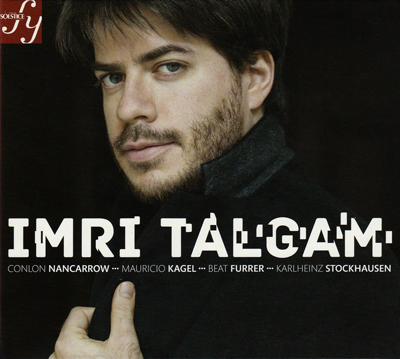Imri Talgam is a pianist and composer based in the Netherlands and a specialist in performance of twentieth-century and contemporary music. Since winning first prize in the Concours de piano d’Orléans (France) in 2014, Talgam appeared as soloist around the world, including with Ensemble Intercontemporain, Ensemble Modern, the Radio Philharmonie Saarbrücken, the Croatian Radio-Television Orchestra, and the Israeli Symphony Orchestra, among others.
He has worked with many of the world’s leading composers, including Boulez, Lachenmann, Poppe, Unsuk Chin, Pintscher, and Eötvös. His recordings include a CD centred on the music of Nancarrow, including transcriptions of his player-piano studies, as well as a CD with works written for him by Yair Klartag, after winning the 2017 Yvar Mikhashoff commissioning prize jointly.
Talgam has given masterclasses in multiple institutions, including Conservatoire National Supérieur de Musique (Paris), McGill University (Montreal), Tel-Aviv University, University of Georgia Athens, and the Tomsk Conservatory (Russia). In 2019, he recorded six lessons on the Ligeti Etudes for the Tonebase platform, a high-end online resource of piano masterclasses.
As a researcher, he worked on cognition-informed strategies for performance of rhythmically complex music. After finishing his doctorate at the CUNY Graduate Center, advised by Joe Straus, he was a Post-Doctoral Researcher and lecturer at McGill University’s Schulich School of Music.
After Studying at Tel Aviv University, Talgam studied at the Hochschule für Musik in Hannover and the Juilliard School in New York, as well as the Ensemble Modern Academy in Frankfurt. His principal teachers were Arnon Erez, Emanuel Krasovsky, Alex Gorin (organ), Matti Raekallio, Robert McDonald, Ueli Wiget, and Ursula Oppens.
Talgam is also a composer of computer music, which he studied at the institute of Sonology in the Hague with Kees Tazelaar and Bjarni Gunnarsson. His work combines microsound and sound spatialization techniques with algorithmic composition and generative strategies.


